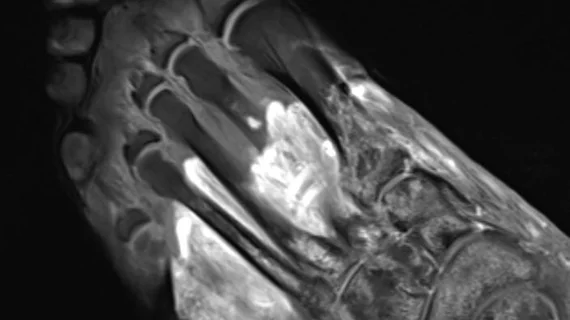A number of COVID-19 patients complain of muscle soreness and achy joints long after they test negative for the disease, baffling doctors. But Northwestern Medicine radiologists say they’ve found evidence to explain such phenomena.
The researchers’ retrospective data review is slated to be published Wednesday in Skeletal Radiology. It’s the first study to pinpoint the origins of long-lasting and sometimes random pain and may lead to better treatment for COVID long-haulers.
“Many patients with COVID-related musculoskeletal disorders recover, but for some individuals, their symptoms become serious, are deeply concerning to the patient or impact their quality of life, which leads them to seek medical attention and imaging," Swati Deshmukh, MD, an MSK radiologist at Northwestern Medicine, said in a statement. “That imaging allows us to see if COVID-related muscle and joint pain, for example, are not just body aches similar to what we see from the flu— but something more insidious."
For their research, the team presented CT, MRI and ultrasound images from patients treated at Northwestern Memorial Hospital between May and December 2020. They detailed the various imaging abnormalities that radiologists need to look out for with corresponding real-world clinical cases.
For example, images may show fluid and swelling in tissues, collections of blood, or even gangrene. And in some cases, Deshmukh et al. found blood clots and bright, enlarged injured nerves. Symptoms can include rheumatoid arthritis flare-ups and even a condition known as “COVID toes.”
Many of the times, the virus directs the body to attack itself, rather than COVID-19 directly causing pain, the authors explained. This paper will help rads understand what to look for, as many injuries have no reference in medical literature.
"I think it's important to differentiate between what the virus causes directly and what it triggers the body to do," Deshmukh added. "It's important for doctors to know what's happening in order to treat correctly."

